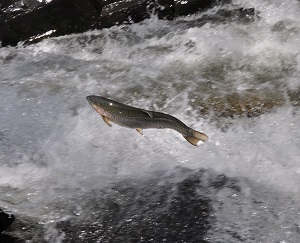Fish & Wildlife Biologist to Speak on Threats to Vermont’s Moose Population
WILMINGTON,
Vt. – From climate change to parasites to the state’s changing forested
landscape, moose face a variety of challenges. Scott Darling, wildlife
biologist with Vermont Fish & Wildlife Department, will give a talk on
Vermont’s moose population entitled Moose in Vermont – The Tiny Threats to
Our Biggest Mammals on Wednesday, August 15 in Wilmington.
The
presentation will be given as part of the Hogback Mountain Conservation
Association’s Annual Meeting at Memorial Hall.
The event will begin with a meet and greet at 7:00 p.m., and Darling will speak
from 7:30 to 8:30 p.m. The event is free
and open to the public.
With
nearly four decades of experience in conservation in Vermont, Darling has worked
on many conservation initiatives in the state, from his internationally
recognized work conserving Northeast bat populations to his efforts leading the
department’s managed large game species program, which conserves moose, deer
and other game species in Vermont.
Darling
will explore the status of Vermont’s moose population in the face of climate
change and introduce to the audience two new critical parasites affecting moose
in the Northeast. He will also discuss the future of moose in Vermont as well
as share what Fish & Wildlife biologists and conservation scientists are
doing to learn more about moose and how they’re working to conserve this iconic
species.
For
Immediate Release: July 20, 2018
Media
Contacts: Scott Darling, 802-777-1732 


